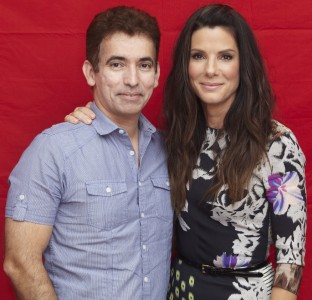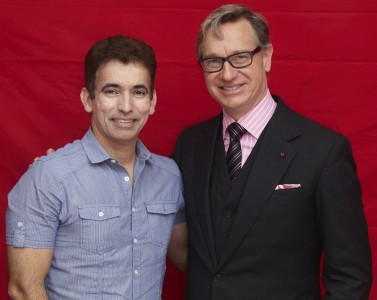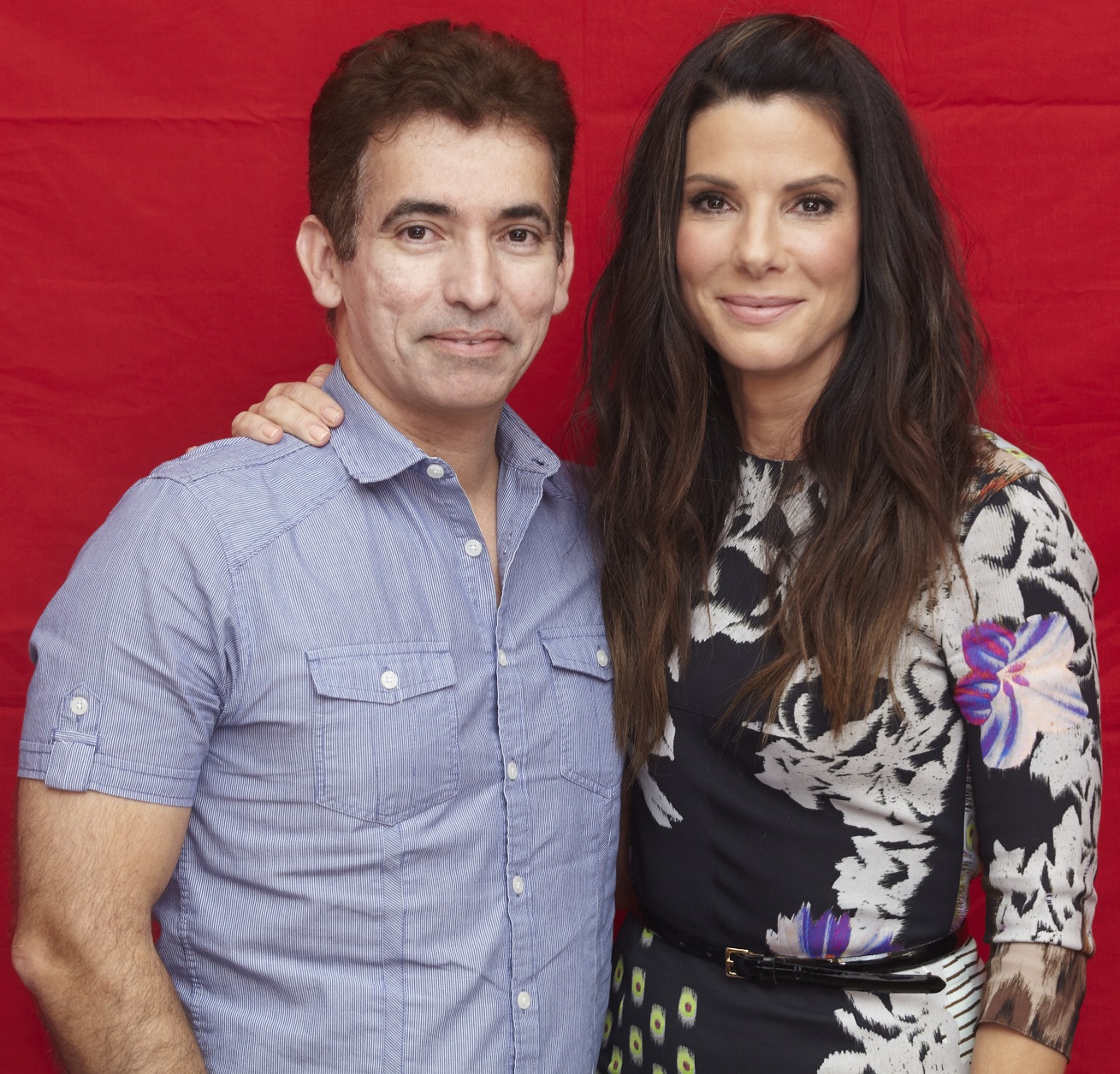
Fox studios’ expectations from their female-cop-buddy comedy, The Heat, were so low that they had initially planned to release it quietly early in the year. Only after seeing the enthusiastic reactions from test screenings did they decide to push its opening to the summer to compete with the major blockbusters.
The box office figures of this week proved them right. The Heat beat a male-buddy actioner White House Down convincingly: $40 to $25 million respectively. Nonetheless, the road to making The Heat was not without challenges, director Paul Feig and the two leading stars Sandra Bullock and Melissa McCarthy tell me when I sit to talk to them at The Ritz Carlton Hotel in New York.
When Bullock was asked by her producer friend a couple of years ago about the kind of film she wanted to be in, she answered “A two-hander female comedy.” The producer’s reply was “Ok, that doesn’t exist.”
“Well, then let’s get the scripts that have been written for men and haven’t been made, and let’s see if there is a premise that we love, where we can change the names.”
Indeed, such films have been exclusively reserved for male characters in Hollywood, which has invariably eschewed making female-driven blockbuster movies. Every summer, male-led movies, such as The Hangover, Iron Man, Batman, Spider-Man and Superman, fill the big screens of multiplexes around the world. The female characters are usually relegated to the superficial roles of the lead’s love interest, or assistant, or even just an object of desire. Some have blamed this schism of screen gender representation on sexism in Hollywood, but others have insisted that it’s purely about box office performance, which allegedly favours male movies.
In 2011, the phenomenal success of the female-led ensemble comedy, Bridesmaids, which was also directed by Paul Feig, stunned Hollywood and injected a new hope for more female-driven movies. “When we were making Bridesmaids, the whole town was almost in suspension because they were like, we can’t green light anymore movies with women until we find out how this one does, which is ridiculous, cause when The Hangover was coming out, they weren’t saying if it doesn’t work then men can’t be in movies anymore,” Fieg protests, shaking his head.
However, the success of Bridesmaids didn’t yield a plethora of female movies. In fact, a recent study by the USC Annenberg School for Communication and Journalism has revealed that 2012 was the worst year for representation of women, both onscreen and behind the camera. The study’s results will probably do little to change Hollywood, considering that the same year produced the highest domestic box-office tally in history: $10.8 billion. Nonetheless, Bullock, who had almost given up on producing due to the lack of projects with strong women -and preoccupation with producing a baby- is upbeat.
“It’s exciting now what you’re able to do,” the Oscar-winning actress enthuses. “You don’t have to fight as much to find material.” Indeed, her friend came back, after a year of waiting, with a two-hander female buddy cop script, from screenwriter Katie Dippold. One character is an uptight FBI agent (Bullock) and the other is a feisty Boston cop (McCarthy). Both are on a mission to capture a brutal drug dealer. “So I read it and I laughed out loud from beginning to end.”
The studio gave her and the filmmakers a $43 million (a fraction of a blockbuster budget) and 45 days to shoot the movie. So two weeks later, she was in Atlanta at a table reading with Feig and McCarthy, whom she had never met before. “We had to work fast,” Bullock says. “We literally just squeezed our way into a little time slot in Boston and because of that amazing Boston crew and Paul’s unbelievable energy level, the script got made.”
Bullock credits the making of The Heat to the success of Bridesmaids. “I think if it wasn’t for the Bridesmaids and what Kristen Wiig and her partner wrote, you wouldn’t have people wanting to look at Katie Dippold’s script.”
Feig concurs, blaming the term chick flick on perpetuating the demeaning notion that female movies have only one focus: a woman finding a man or falling in a love.
“We are never allowed to show them in a way where it is okay for them to be professionals.” he exclaims. “What I like about The Heat is, there’s never any judgement about ‘oh, you should find a man.’ it’s basically like you are great at your job, but for Sandra, she is trying too hard because she’s in a man’s world, and she’s really trying to be taken seriously. And then Melissa is this headstrong woman who is a loner, because she is dedicated to what she is doing. They are played like human beings and they have vulnerabilities.”
Indeed, neither of the ladies is an object of desire nor a source of attraction, each is a hardened law officers who are focused on the job of cleaning the streets

of drugs and criminals. “You don’t normally get to see women doing that in the film, and why not?” Feig wonders. “That’s how some women do their job in the workplace and others don’t, but I want to see all types of female characters in movies, and we were fed such a steady stream of romantic comedies starring women, which is fine, but I want to see other aspects. I want to see them getting to be tough, but not so tough that they are kind of acting like men. I like that they are strong, professional women, who are great at their jobs and just need a little bit of help on the personal side.”
The question is: why was The Heat not directed by a woman? If you look at the box office charts, you won’t find a single female director in the top 60 highest grossing movies. Is Hollywood to blame for not offering female directors the opportunity to helm blockbusters? The problem is that there are not that many women with such an established record that a studio could trust with budgets of tens of millions of dollars, and the successful ones, such as Oscar-winning director Kathryn Bigelow and award-winning Jane Campion, have opted to work on low-budget movies. In fact, according to a Sundance study, female directors are well represented in the independent cinema scene, suggesting that they prefer to work on intimate human stories, which have far more substance than Hollywood blockbusters. Interestingly, the thought of having a female director hasn’t even crossed the minds of Bullock and McCarthy.
“Paul loves women,” says McCarthy, who has previously worked with him on Bridesmaids. “He thinks women are funny and smart. Everyday is a delight on set because he just says why not, why wouldn’t you, what do you think. I can’t ask for anything more from a director than one who is just willing to take any suggestion you have.”
The Heat will undoubtedly enhance the chances of other female-led movies to be made, as Bridesmaids has done, but most likely it won’t achieve gender equality in movies. As long as Hollywood is dominated by male screenwriters and directors, we will continue to be deluged with male-led movies, but evidently this is changing thanks to the emergence of female writers, who have penned hits such as Bridesmaids, Twilight, The Hunger Game and The Heat.
“I do think the landscape is changing,” 48-year-old Bullock enthuses. “I mean, I am over 40 and I’m shocked that I’m offered more than I’ve ever been offered before and I’m not going to question it,” she laughs.
